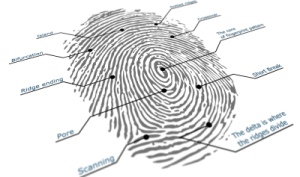
Fingerprint Cards (FPC) is trying to dispel some of the more persistent misconceptions about biometrics. The company notes that pop culture often gives people a misguided or outdated sense of what is and is not possible with biometrics, and those myths get perpetuated every time audiences see a movie character use a piece of tape to lift someone’s fingerprint off a drink glass in the middle of the film.
Of course, biometric technology has improved dramatically in the past few decades, and those simple parlor tricks will no longer fool more sophisticated systems. Even so, the majority (56 percent) of US and EU consumers are still worried that biometrics are not strong enough to be trusted with everyday security.
That’s why FPC wants to alleviate those concerns. The company stressed that biometric data is usually stored as a template in encrypted binary code, and that those templates are usually stored natively on a device like a smart card or a smartphone rather than in the cloud. That makes it extremely difficult for hackers to get their hands on biometric information.
It also limits the amount of damage a fraudster can do if they do manage to spoof someone’s fingerprint. To use it, the fraudster would need to have access to the device in which the fingerprint is stored, and most people will notice (and take appropriate precautions) if their phone or their credit card goes missing.
Finally, FPC pointed out that biometric algorithms are now smart enough to account for the slight changes that occur as people age. That reduces the need to re-enroll faces or fingerprints over time and makes biometric security more convenient.
FPC recently detailed the rigorous process that it uses to test its biometric payment cards. The company is currently trying to diversify its portfolio with the release of a new biometric software platform designed for access control.
–
March 30, 2020 – by Eric Weiss








Follow Us